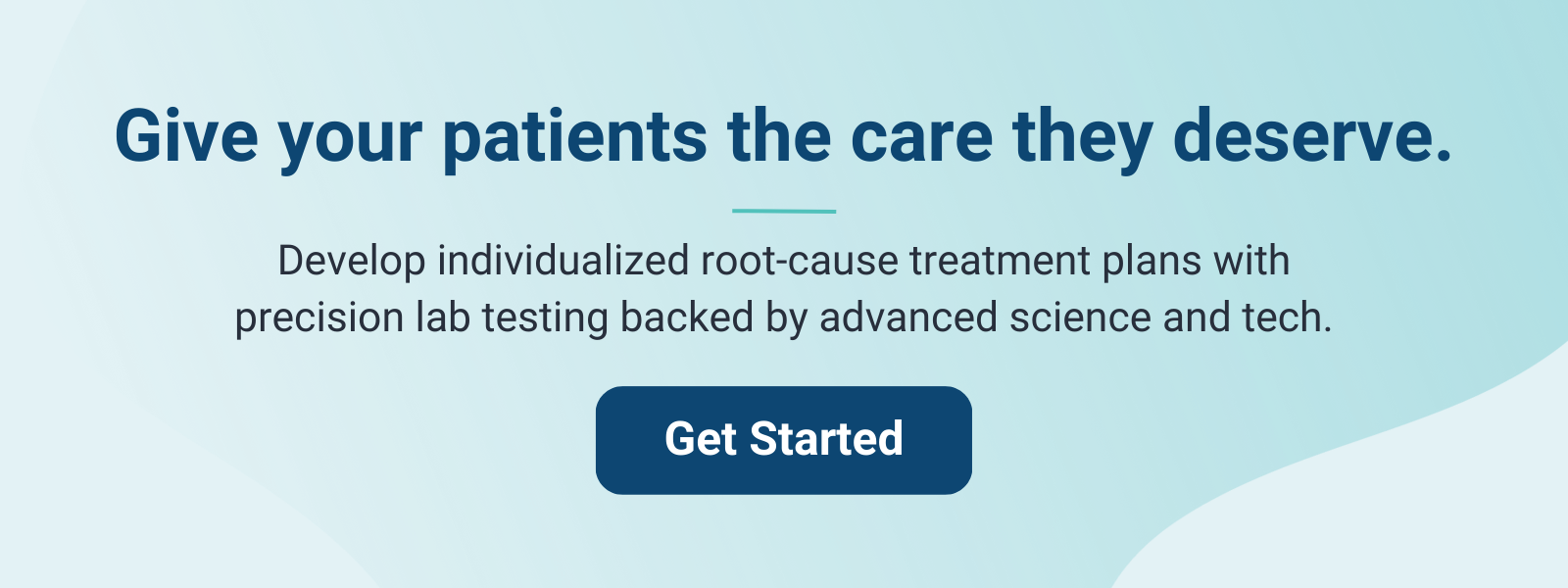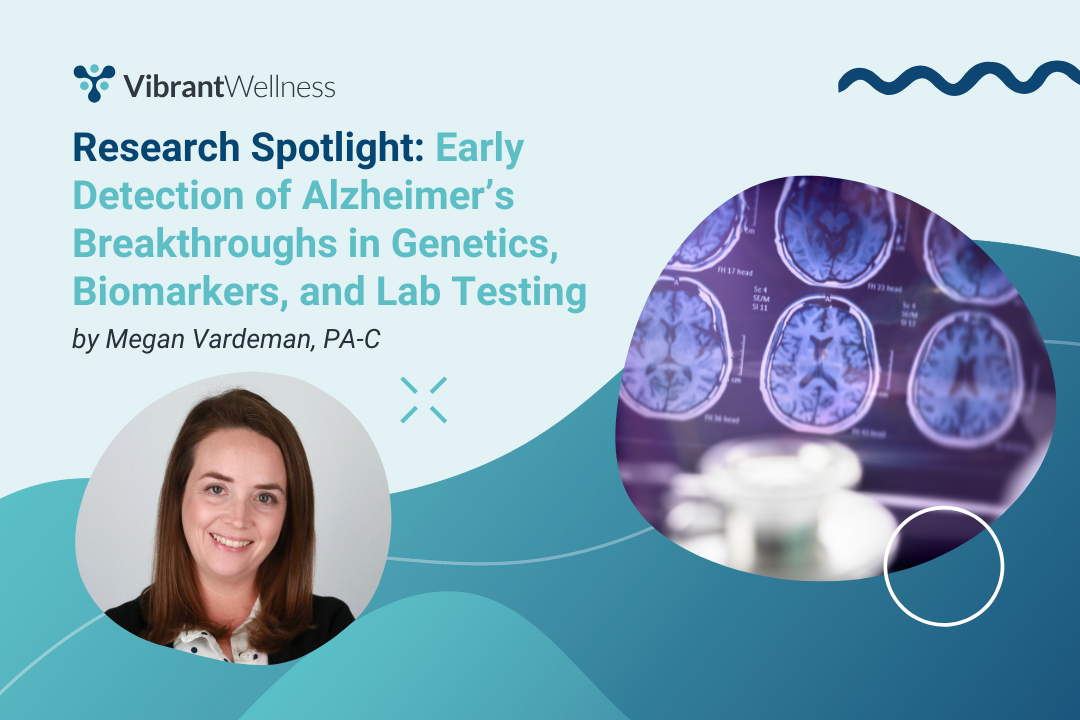Exploring the Gut-Brain Connection and Its Impact on Mental Health
The world is experiencing an alarming rise in mental health conditions. Adults, as well as children and young adults, are facing an increase in mental health symptoms. Society is currently struggling with the highest rates of depression, anxiety, and suicide we have ever seen:
- Suicide is the 4th leading cause of death worldwide in individuals between the ages of 15 and 29, and more than 700,000 people commit suicide each year.1
- The National Institute of Mental Health estimates that 21.0 million adults in the United States have experienced at least one episode of major depression.2
- Approximately $106.5 billion dollars is spent on mental health disorders in the United States, with about 44% of this being on prescription medications for the management of mental health conditions.3
It’s safe to say we have a crisis on our hands. The Weston A Price Foundation makes a compelling argument that gut health and diet greatly impact mental health. The Foundation notes that often when an individual adopts a diet that heals the gut and promotes healthy gut flora, a return to stable mental health can be achieved.4

In this article, we’ll explore the link between gut health and mental health, shedding light on how dietary choices, gut flora, and inflammation impact mood and mental resilience. You'll learn how understanding and supporting this connection may open new paths to managing mental health naturally and effectively.
Table of Contents
What Is the Microbiome?
There is abundant evidence that a direct and positive correlation exists between a healthy gut and a physiological foundation that promotes overall health and well-being. Emphasizing gut health in your practice is essential to promoting more positive health outcomes.
But what exactly is the microbiome? “Microbiota” is the term used for the ecological community that lives in the gut.5 These microorganisms consist of bacteria, viruses, yeast, and fungi. “Microbiome” refers to all these microorganisms and their collective genetic material.5

Research suggests the human gut is home to over 1,000 different species of bacteria.5 The communication between these gut organisms and the human body plays a wide variety of active roles that support metabolic functioning and overall health and well-being. A broad and healthy diversity within the microbiome is a critical component in the foundation of basic gut health.
Patient Understanding of the Microbiome
As practitioners, we often receive feedback from patients indicating a narrower understanding of gut function and health— many believe that food is consumed for calories, digested, and then waste is eliminated. While most patients recognize the gut’s role in digestion, they often overlook the broader implications of microbiome health.
Our patients typically associate the gut with digestive issues: bloating, constipation, diarrhea, or cramping. Many understand that certain probiotics or prebiotics can help manage these symptoms. However, do you think your patients appreciate the intricate balancing act the microbiome performs or its critical role in systemic health?
Educating patients about this complexity can bridge the gap between symptom management and proactive health maintenance. By fostering a broader understanding of gut health, we can help patients take a more comprehensive approach to their overall well-being.
The Gut-Brain Axis: A Bidirectional Connection

Microorganisms in the gut play a significant role in the functioning of our bodies. The microbiome-gut-brain connection, or the gut-brain axis, is the association between microscopic organisms and the central nervous system. This axis or “connection” employs a bidirectional feedback mechanism between the gut and the brain, and dysregulation of the microbiota (i.e., dysbiosis) has been linked to various psychiatric disease states such as depression, anxiety disorders, schizophrenia, and neurodevelopmental disorders.6
It is estimated that more than 95% of serotonin is found in the GI tract.7 Serotonin, a key neurotransmitter often considered the “feel-good” hormone, plays a critical role in regulating mood, particularly in conditions like depression and anxiety.7
Given this, gut health directly influences how effectively the body manages these psychiatric conditions or, conversely, how dysregulation in the gut can contribute to mental health challenges. Gut health is the cornerstone of digestion, mental health, energy, and immune system function.
Diet and Mental Health: Evidence from Research
The MyNewGut Project aims to identify the influence the human gut microbiome has on health and to target specific dietary strategies that will result in positive health outcomes. The project currently recommends that patients with depression or those who are vulnerable to depression be encouraged to consume a plant-based diet with a large quantity of grains, fiber, and fish.8
This provides further evidence that a well-rounded diet consisting of whole foods and zero to only minimally processed foods will aid in a healthier microbiome and, thus, decrease the inflammatory burden on the body.
Additionally, a randomized controlled study published in February 2017 was the first of its kind to demonstrate the effect of fresh fruit and vegetable (FV) consumption on the psychological well-being of young adults. Remember, mental health struggles are greatly impacting young adults. The research revealed that providing individuals with fresh fruits and vegetables improved their mental health and provided evidence for a positive link between diet and mental health.9 These results were from a mere two-week study period.

This begs the question—how could months or years of healthy food consumption positively impact gut health and, thus, our patient’s mental health? It was the “first study to show that providing high-quality FV to young adults can result in short-term improvements in vitality, flourishing, and motivation.”9
This research establishes the importance of consuming a nutritious diet, minimizing processed and ultra-processed foods, and prioritizing gut health and the microbiome in the treatment of not only certain psychiatric disorders but also as a general pathway to creating a physiological foundation of health and wellness.
While we can be confident and hopeful from these results and the promise of better mental health outcomes in patients due to prioritizing the gut-brain axis, it also demonstrates the need and the value for additional near- and long-term research studies.
Putting it Into Practice: The Gut-First Protocol

A 31-year-old patient came to me with a primary complaint of severe eczema after seeing a traditional dermatologist who recommended Dupixent, an immunomodulator that treats eczema by suppressing the immune system. Anecdotally, this patient’s eczema was one of the most severe cases I have ever seen in over 10 years as a medical provider.
During the intake and upon exploring more in-depth the patient’s symptoms, it became clear that the patient was also struggling with significant anxiety. Keeping the gut-brain axis in mind, I emphasized a gut-first approach with this patient by following the protocol below.
Address Dysbiosis
When treating dysbiosis, the goal is to restore a healthy microbial balance in the gut, which is often disrupted in patients presenting with inflammatory and immune-related conditions. The following steps can help identify and address dysbiosis in patients:
- Order a specialty stool test like the Vibrant Wellness Gut Zoomer to assess levels of bacteria, yeast, viruses, and parasites in the gut microbiome alongside relevant digestive and inflammatory markers.
- Recommend high-quality pre-and probiotics to promote a healthier balance of gut flora.
Additionally, take time to educate patients on the role of phytonutrients and encourage a broad range of phytonutrient consumption via whole foods to promote microbiome diversity and gut health. Phytonutrients are compounds produced by plants with anti-inflammatory agents and immune-boosting properties. Phytonutrients can be broken down into different categories, such as carotenoids, flavonoids, glucosinolates, lignans, and saponins.
Investigate and Address Food Sensitivities
.png?width=800&height=300&name=2024%20-%20A%20Comprehensive%20Approach%20to%20Recurrent%20UTIs%20(22).png)
I discovered this patient was highly sensitive to dairy and gluten through food sensitivity investigation. This can be approached from multiple angles:
- For highly motivated patients, a full elimination and reintroduction diet can be implemented. The most intensive elimination and reintroduction diet consists of removing all foods and substances most highly associated with sensitivity reactions (wheat, soy, dairy, peanuts, sugar, caffeine, chocolate, etc.) for up to three months. After the elimination period, you can guide your patient by reintroducing each food/substance one at a time, consuming it in its purest form, paying close attention to any reactions, and recording them.
An important safety precaution: A food or substance with a known anaphylactic reaction should never be reintroduced to a patient, and these foods or substances should be handled by a medical professional specializing in food allergies.
- A modified elimination and reintroduction diet guided by food sensitivity testing and support from the Vibrant clinical team. This approach has the added benefit of increasing patient compliance by reducing the number of foods eliminated and providing data to support your recommendations. A clinical trial studying the efficacy of personalized food elimination diets guided by Vibrant Wellness Food Sensitivity and Food Zoomer testing found that 88.46% of participants experienced a significant decrease in GI symptom severity from baseline to week four.10
Additionally, many of the panels, such as the Wheat Zoomer, can be repeated several months after the initial test once the patient has removed the offending substance(s), such as wheat, to check for improvements in immune reaction and to ensure inflammatory markers are trending in the right direction.
Promote a Healthy Intestinal Barrier

Lastly, support the lining of the gut, which creates a healthy protective barrier. Many great supplement blends are available on the market that promote gut health and repair. Be sure to structure a solid gut protocol around supplements like glutamine, butyrate, omegas, aloe vera, probiotics, zinc carnosine, slippery elm, marshmallow, and deglycyrrhizinated licorice.
You can also utilize immunoglobulins to maintain a healthy gut lumen by binding microbes and toxins. Additionally, encourage patients to shop the perimeter of the grocery store and visit their local farmer’s markets to find fresh, local, and organic produce, grass-fed meats, and pastured eggs, to name a few.
After aggressively targeting gut repair and diet modifications with this patient for three months, the eczema this patient had been living with for nearly their entire life completely cleared up, and the anxiety substantially improved!
The Opportunity: Holistic Healing Through Gut Health
Supporting patients through improved gut health is both approachable and manageable with the right tools, knowledge, motivation, and patience. Seeing a patient who has been struggling with chronic emotional or physical health issues improve for the first time is a profound and rewarding experience! And here lies the opportunity—true, holistic physiological restoration!
Poor gut health is a major contributor to inflammation. Inflammation has a profound impact on the body and the gut microbiome. Inflammation comes from many sources, including chronic stress, exposure to toxins, poor diet, poor sleep quality, infections, injury, and traumatic life experiences. Inflammation has numerous negative impacts on the human body, and the symptoms of inflammation can be broad and varied.

The path to improved health is centered around containing and reducing inflammatory responses. Practitioners can help patients identify sources that drive inflammation by addressing the foundational pillars discussed above—addressing gut health and recommending a quality diet based on whole food choices.
Additionally, be open to discussing with your patients the importance of maintaining good sleep habits, limiting toxic exposures within their control, and identifying and containing sources of stress to reduce the overall inflammatory burden on the body.
Finally, specialized gut testing, like the Gut Zoomer, can be extremely valuable when analyzing a patient's gut health. The Gut Zoomer analyzes the microbiome, markers of inflammation, digestion, and leaky gut, allowing practitioners to offer targeted therapeutics to support and improve gut health, such as digestive enzymes, pre-and probiotics, antimicrobial herbals, and gut lining support. It also serves as an initial point of reference to track changes, improvements, and progress, which can be highly motivating for patients across all physiological spectrums!
About the Author
Megan is a co-founder, Clinic Director, and functional medicine specialist serving patients at Your Wellness Practice, an Integrative Psychiatry clinic in Houston, Texas. She attended PA school in West Texas at Texas Tech University Health Sciences Center, graduated with her Master's degree in 2012, and began practicing medicine in 2013. She worked in Internal Medicine, Primary Care, and Pediatric Surgery before pursuing a fellowship in Integrative Medicine. Megan co-founded Your Wellness Practice to provide more personalized, integrative, and depth-oriented care to those who seek it. "The realities I encountered during those initial years of practice led to my passion to look further and to recognize that the deep answers lie outside of traditional medicine. I believe that our mind, body, and spirituality are intimately interconnected. Our beliefs, values, and experiences impact our daily habits, decisions, and actions. I genuinely look forward to working with my patients and helping them navigate a journey to better health." Megan works with patients to provide wellness consultations, lifestyle and health coaching, functional testing and diagnosis, and IV nutritional therapy.
References:
- “Depressive Disorder (Depression).” World Health Organization, World Health Organization, 31 Mar. 2023, www.who.int/news-room/fact-sheets/detail/depression.
- “Major Depression.” National Institute of Mental Health, U.S. Department of Health and Human Services, July 2023, www.nimh.nih.gov/health/statistics/major-depression.
- Soni, A. Health Care Expenditures for Treatment of Mental Disorders: Estimates for Adults Ages 18 and Older, U.S. Civilian Noninstitutionalized Population, 2019. Statistical Brief #539. February 2022. Agency for Healthcare Research and Quality, Rockville, MD
- Mental Health Nutrition, www.westonaprice.org/wp-content/uploads/FlyerMentalHealth.pdf. Accessed 30 Oct. 2024.
- Sirisinha, S. (2016). The potential impact of gut microbiota on your health: Current status and future challenges. Asian Pac J Allergy Immunol, 34(4), 249-264.
- Lee Y, Kim YK. Understanding the Connection Between the Gut-Brain Axis and Stress/Anxiety Disorders. Curr Psychiatry Rep. 2021 Mar 12;23(5):22. doi: 10.1007/s11920-021-01235-x. PMID: 33712947.Kim, Doe-Young, and Michael Camilleri. "Serotonin: a mediator of the brain-gut connection." The American journal of gastroenterology10 (2000): 2698.
- Kim DY, Camilleri M. Serotonin: a mediator of the brain-gut connection. Am J Gastroenterol. 2000 Oct;95(10):2698-709. doi: 10.1111/j.1572-0241.2000.03177.x. PMID: 11051338.
- Dinan TG, Stanton C, Long-Smith C, Kennedy P, Cryan JF, Cowan CSM, Cenit MC, van der Kamp JW, Sanz Y. Feeding melancholic microbes: MyNewGut recommendations on diet and mood. Clin Nutr. 2019 Oct;38(5):1995-2001. doi: 10.1016/j.clnu.2018.11.010. Epub 2018 Nov 17. PMID: 30497694.
- Let them eat fruit! The effect of fruit and vegetable consumption on psychological well-being in young adults: A randomized controlled trial Conner TS, Brookie KL, Carr AC, Mainvil LA, Vissers MCM (2017) Let them eat fruit! The effect of fruit and vegetable consumption on psychological well-being in young adults: A randomized controlled trial. PLOS ONE 12(2): e0171206. https://doi.org/10.1371/journal.pone.0171206
- Krishnamurthy HK, Pereira M, Jayaraman V, et al. Personalized food elimination diet: a clinical trial based on food sensitivity assessment. Published June 19, 2024. PREPRINT (Version 1). Research Square. https://doi.org/10.21203/rs.3.rs-4596789/v1
Regulatory Statement:
The information presented in case studies have been de-identified in accordance with the HIPAA Privacy protection.
The general wellness test intended uses relate to sustaining or offering general improvement to functions associated with a general state of health while making reference to diseases or conditions. This test has been laboratory developed and its performance characteristics determined by Vibrant America LLC and Vibrant Genomics, a CLIA-certified and CAP-accredited laboratory performing the test. The lab tests referenced have not been cleared or approved by the U.S. Food and Drug Administration (FDA). Although FDA does not currently clear or approve laboratory-developed tests in the U.S., certification of the laboratory is required under CLIA to ensure the quality and validity of the test.
 By
By



